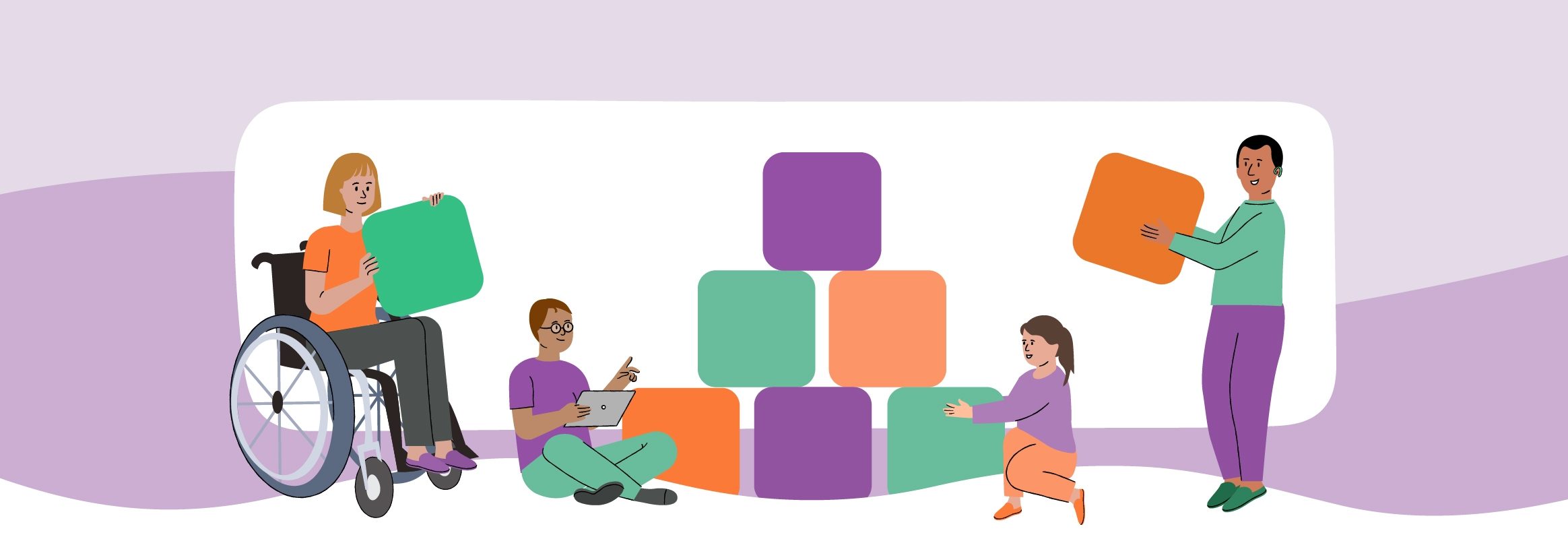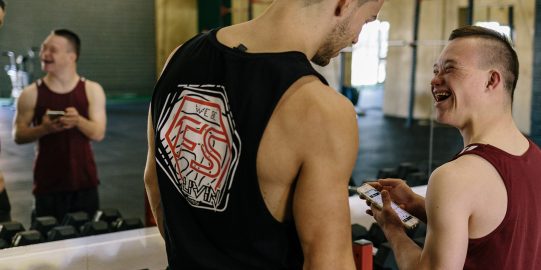Presuming competence is sometimes referred to as “the least dangerous assumption.” Suppose we assume someone cannot communicate and leave them no way to express themselves. In that case, we fail them. Instead assume they can communicate and give them opportunities to do so. If we do not presume competence, we probably give up and stop teaching. Then a person cannot progress. Instead, we try: no harm can be done by trying!
Presuming competence in practice
Presuming competence is more than just a catchphrase. It changes what we think and do. When we presume competence, in practice, this leads us to build an environment, provide tools, teach and allow time.
When we presume competence, we create an environment that supports communication. Communication tools are always available and all members of the environment are trained to build communication opportunities. The environment builds and supports communication.
Presuming competence means that we also have the right communication tools. Communication tools like AAC that have enough words and vocabulary so that someone can say anything to anyone anytime. Presuming competence in AAC goes beyond just giving access to an AAC system - it also means providing an AAC vocabulary that allows the opportunity to access as many words as they want. When limited access or a limited vocabulary is given to a child, they do not have the chance to explore language verbal children do.
Learning to communicate requires teaching. When we presume competence, we are open to providing teaching opportunities. We show how words can be used to communicate real messages in real situations. We teach and build language skills.
A special announcement
This AAC Awareness Month, AssistiveWare is thrilled to share a special project with you - the film This Is Not About Me! This is Not About Me tells the story of Jordyn Zimmerman, a nonspeaking autistic woman. Jordyn was born and raised in Ohio. She grew up in an educational system that didn’t believe in her; it wasn’t until she turned 18 that she met a team that treated her with the respect every student deserves. They presumed her competence and gave her access to a more robust AAC. Once equipped with that AAC, she graduated high school in just a year. Her story perfectly illuminates the importance of presuming competence and how it can change lives.
AssistiveWare is incredibly proud to have supported such a groundbreaking film that shows how every person has something to say. You can watch the film here.
We will share more about the documentary and other ways to presume competence throughout AAC Awareness Month, so make sure to follow us on social media.





